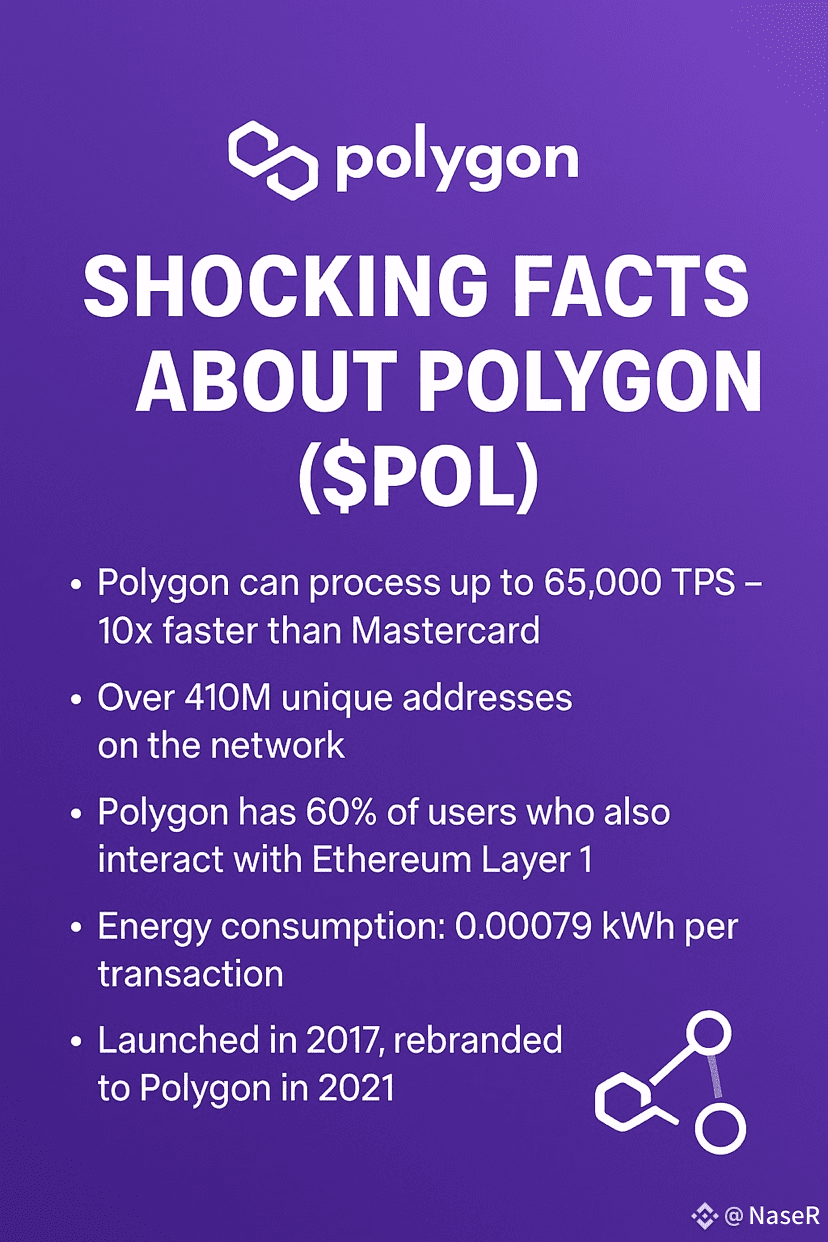Mind-Blowing Scalability:
Polygon can handle up to 65,000 transactions per second (TPS)—that’s 10× faster than Mastercard and 3× faster than Visa .
Remarkable Growth in Ecosystem Activity (2025):
Over 410 million unique wallet addresses on the network.
Nearly 19 million monthly active users in Q1 alone.
2.5 million users engaged in Web3 gaming just in February.
4 million verifiable credentials issued via Polygon ID.
60% of active users also interact with Ethereum Layer 1.
Mobile wallet usage rose 39% YoY, and DeFi dApp-dependent wallets surged 23% YoY.
Giant Backing & High-Stakes Acquisitions:
Acquired Mir for 250 million MATIC (~$400 million at the time).
Raised $450 million in funding from heavy hitters like Sequoia India and SoftBank Vision Fund .
Environmental Leader—Carbon-Negative Ambitions:
Energy consumption: just 0.00079 kWh per transaction (compared to 238 kWh for Bitcoin).
Carbon-neutral since 2022, aiming for carbon-negative status by end of 2025 .
Institutional Trust and Growth:
Nomura’s crypto arm Laser Digital launched a Polygon-focused institutional fund, giving large investors staking exposure to $MATIC .
Validator Concerns & Decentralization Debate:
$A hard fork was approved with only 13 of 100 expected validators participating—raising valid questions about the network’s decentralization .
Powerful Real-World Partnerships:
From #Disney , #Coca-Cola , #Meta , to #Nike and #Starbucks , #Polygon is embedded across industries.
Google Cloud integration via BigQuery elevates accessibility and analytics for blockchain developers .
Why It Matters
Polygon isn’t just a bridge for $ETH —it’s evolving into a robust, high-performance multi-chain ecosystem driving real-world utility. With massive adoption,
institutional interest, and bold environmental goals, it’s moving beyond hype into substance.
But balancing decentralization, scaling, and broad partnerships remains crucial for its future trajectory
